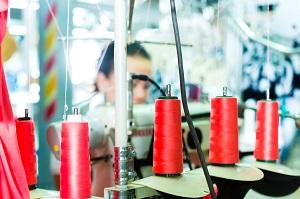
The days of voluntary measures to improve sustainability in the garment and footwear sector appear to be numbered, according to speakers at a recent event. With regulation and smart policy implementation, the sector has the potential to build back better post-COVID-19, prioritising the environment and improvements to employment standards for sector workers with a UN-developed plan of action.
Cohesive policy making and collaborative action are essential if real improvements are to be attained, according to speakers at an event organised by UNECE with the ITC and the European Commission on 1 February.
“Voluntary initiatives have proved to be insufficient to move the process forward, it is high time for governments, regulators and policy makers to come in,” said Maria Teresa Pisani, team leader of the traceability initiative at the UN’s Economic Commission for Europe, which has developed a series of recommendations, standards and guidance. “For policy makers, for governments, we have policy recommendations that include a set of five key measures that have to be put into place to advance traceability and transparency.”
Over 260 participants tuned in for the online event, which brought together industry insiders, policy makers and representatives from the European Commission and United Nations. The event, ‘Decent Work, Transparency and Traceability in the garment sector: emerging stronger from the COVID-19 crisis’ was part of the OECD Due Diligence Forum for the Garment and Footwear Sector, a week-long schedule of debate and exchange on cleaning up and improving due diligence, work conditions and human rights in the sector.
The garment and footwear industry is a resource-intensive sector with important climate and environmental impacts. Textile consumption is the fourth highest pressure category in the EU in terms of use of primary raw materials and water (after food, housing and transport), and fifth for GHG emissions, according to the European Environmental Agency. Abuses and exploitation of workers, many of whom are women in developing or least developed countries, is also a major problem in a sector where a complex international web of factories and suppliers makes it difficult for companies to keep oversight of their value chain.
“One of the key aspects of getting this right is traceability,” said Joseph Wozniak from the International Trade Centre, noting that the UN role in addressing this issue is important as it can reduce some of the cost burden associated with improved traceability. “As a UN organisation we can have this neutrality, as an honest broker, allowing small and medium-sized enterprises to access the tools and global public goods for free.”
Regulators are called to play an increasing role to support responsible business conduct due diligence. UNECE and ITC are, with the support of the European Union, leading an international effort to provide solutions to make it easier to track, trace and label sustainability information about products, processes and organizations throughout the garment and footwear value chains, and by the same token to advance responsible consumption and production patterns through reliable standardised data-driven systems. Their recommendations, information exchange standards and tools for action are public goods, being developed for free distribution and implementation.
The global COVID-19 pandemic stifled demand for clothing and footwear as shops closed and populations stayed home under national ‘lockdowns’, or other restrictions on their movement. But this dramatic change of tempo also offers an opportunity for change, agreed speakers from Social and Labour Convergence Programme, the Initiative for Compliance and Sustainability and other campaign groups.
“The pandemic has hit workers incredibly hard and we cannot return to the way things were before as they were not acceptable at all,” said Paul Roeland from Clean Clothes Campaign. “If we talk about building back better, that will mean better wages, that will mean much more transparency, that will mean full access to remedy.”
As vaccines are rolled out this year and the world dares to look forward to a post-pandemic economic recovery, stakeholders in the garment and footwear sector are increasingly uniting for action.
“We were missing clear standards and the UNECE really has the competence there to develop these standards,” said Heinz Zeller from Hugo Boss, adding that the time is right for action. “This.. [pandemic] has brought brands and suppliers together more than ever before.”

